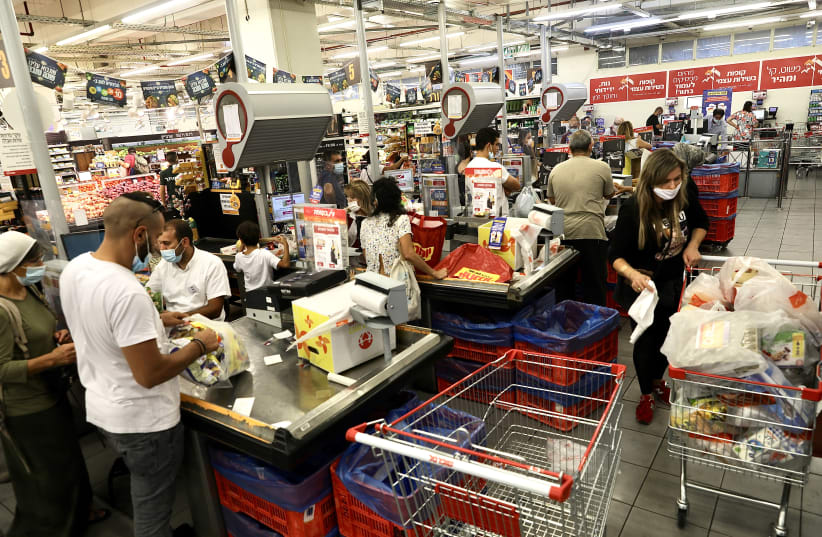The Israel Competition Authority must take more steps to remove barriers to competition in the food industry and lower the cost of living, according to the State Comptroller’s Report released on Tuesday.
Israel’s food market is overconcentrated compared with other markets around the world, the report said. The 10 largest food suppliers hold a combined share of about 54% of the entire food industry and consumer-products sector. Four of them have shares of more than 10% in several categories in the food industry, such as meat, milk and fish, it said. However, no player has been declared a monopoly in more than 20 years.
The Health Ministry’s National Food Service control procedure for importing food is cumbersome and lengthy, the report said. The costs of the regulatory burden for importers skyrocketed by an average NIS 55,000 per year following the 2016 “cornflakes reform,” which was intended to increase food imports, and the process became 60 to 90 days longer.
Meanwhile, a major proportion of the significant importers who have won quotas are also large domestic producers or retailers, the report said.
In addition, tariff reductions and the opening of duty-free quotas in the years 2016-2020 have mostly not been passed on to the consumer. For example, the opening of a duty-free quota for raisins in May 2018 resulted in a decrease of only 2.2% in their price, the report said.
The period of time for the Agriculture Ministry to process a request for plant imports, including for the risk assessment procedure, lasts an average of two years, or in many cases, about four years. This prolonged delay blocks the import of new fruits and of recognized fruits from new countries, resulting in a lack of competition that leads to higher fruit prices.
For example, the price of pineapple in Israel is six times higher on average than its price abroad, the report said.
Among supermarkets, in 2019, there were 810 large stores around the country, of which almost a fourth (194) had a market share of more than 30%, with more than half of those (53%) having a market share of more than 50%.
However, the Consumer Protection Authority conducts an average of only one or two inspections per year per large retailer, not enough for it to effectively control the reliability of the information that retailers publish.
That leads to higher consumer prices. In 2017, prices in Israel in the nonalcoholic food and beverage category, in terms of purchasing power, were 37% higher relative to OECD countries and 51% relative to EU countries.
Spending on food in Israel is the third largest of all household expenditures, at NIS 132 billion, comprising about 18.5% of total expenditures in 2018, the report said.
The State Comptroller’s Report recommended, among other things, that the Competition Authority work to remove barriers to competition in the food industry and lower the cost of living, such as identifying monopolies and conglomerates, and take appropriate action.
In addition, the authority must continue to act to promote parallel imports, examine alternatives and formulate appropriate measures for action with direct importers.
Meanwhile, the Finance and Economy ministries must conduct periodic checks to ensure that the actions they have taken to reduce the cost of living are achieving their purpose and to examine ways in which the reduction of tariffs for consumers will be rolled out, the report recommended.
